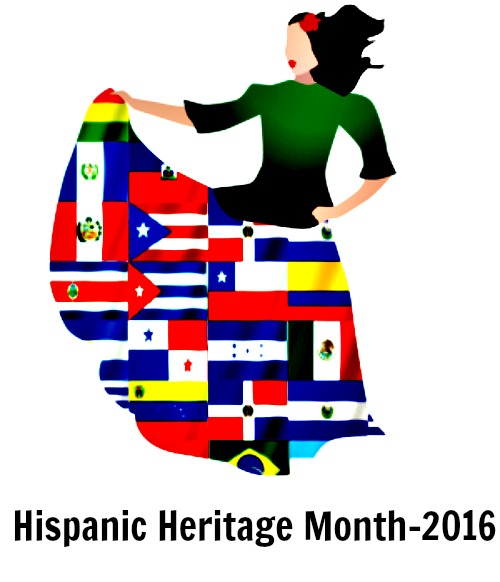National Hispanic Heritage Month is about recognizing and celebrating the culture, history and contributions of Americans whose ancestors originated from Latin American countries.
Personally, as a fifteen-year-old Latina student in Los Angeles Unified School District, this month is a time for me to emotionally connect with the history and culture of my Latino ancestors. During the many festivities that take place during this month, I have learned about revolutionary Latina role models who continue to inspire for generations. Learning about impactful and determined women, such as Frida Kahlo, who transformed Mexican culture into her art form; Dr. Ellen Ochoa, who was the first Latina in history to go to space; and Sonia Sotomayor, the very first Latina Supreme Court justice, has shown me that I too have the capability to follow in their footsteps — and perhaps make history.
I have learned over time with the constant encouragement and support of my parents that furthering my education, and hopefully attending my dream school of Harvard, is fundamental to the success I hope to achieve one day — successes much like those achieved by the inspiring Latina role models before me. Unfortunately, not all Latino students have the same access to opportunities, and many of my Latino peers face unfair challenges in a system that denies them the equitable and quality education they deserve.
In California, our broken education laws are clearly hurting children of color across the state. One example is the state’s teacher employment laws, which deny students an equitable education by concentrating the best teachers in our most advantaged schools and leaving students in our low-income communities — where many Hispanic students reside — with few opportunities to receive the quality instruction critical to their success.
I too have experienced firsthand the effects of misguided teacher employment laws, and my own experiences with this system have led me to believe that being a kid in the California public school system right now is a lot like being in the lottery. You could get lucky and win the jackpot with effective teachers, or lose and get ineffective teachers who too often hold you back or leave you behind. I have had my share of both.
No matter the school, the grade or the program, in an effective teacher’s classroom, you feel inspired to learn, school never feels like a chore and the work is often exciting. In an ineffective teacher’s classroom you can lose a whole year’s worth of learning and start to think you’re incapable of learning altogether. You slowly stop hoping for your success, and instead just hope for the class to end.
In spite of the challenges I have faced in my academic experience, I honestly consider myself to be one of the lucky ones. I was lucky in the sense that I had two college-educated parents who consistently advocated for me throughout my school journey and taught me to be the empowered Latina student I am today. However, a different reality exists for those students whose parents don’t know how to navigate the school system, are immigrants who don’t speak English and trust that our current education system will help their children achieve the promised American Dream. The system is just not built to serve these kids who deserve success just as much as I do. Instead, the school system relegates them to a status in which Latino stereotypes become reality, poverty cycles are perpetuated and students become just another high dropout statistic.
This is a true injustice, and frankly, even unconstitutional. It is stated in the U.S. Constitution that all citizens are entitled to the equal protection of our laws. Yet for students of color, and specifically Latinos, it is clear that our current education system is anything but equal. Public education is supposed to be the great equalizer, allowing all students to reach their full potential. But for many students this dream of a quality education continues to be elusive. That is why it is critical that the Latino community stand up and help to address the inequities and obstacles placed by the education “lottery system,” so that students may one day give back to their communities and become productive citizens.
As we celebrate our community’s heritage and the strong Latinos and Latinas who came before us, it is critical that we also work to empower our future heroes by ensuring that all students receive the education we deserve. Because “Sí, se puede.” Yes, we can.

